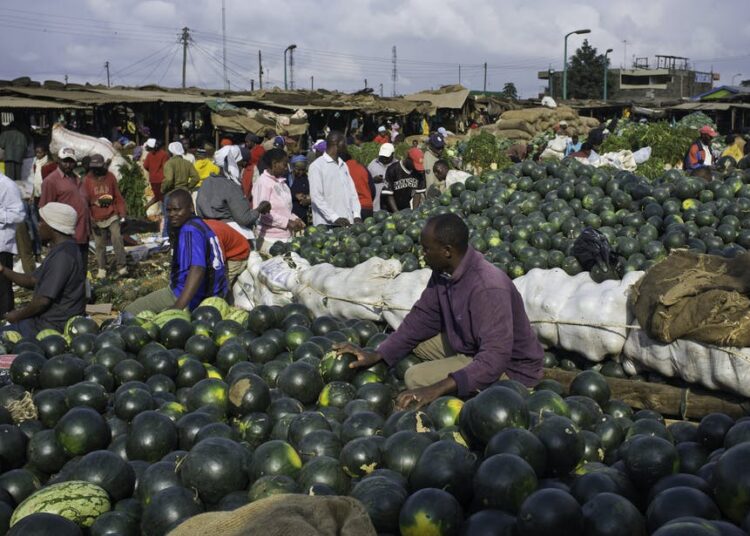A food scientist, Dr. Tony Bello, has recommended dehydration of fresh food produce as a solution to the annual post-harvest losses worth N3.5 trillion in the country.
Food dehydration is a process of reducing moisture of food to low levels for improved shelf life by adding one or more forms of energy to the food
Foods can be dehydrated by various means: the sun, a conventional oven, an electric dehydrator, a microwave oven (for herbs only), air drying and solar drying.
Bello, who is the Chairman and Co-Founder of Shine Bridge Global, a U.S- based food and agro-allied services company, made the recommendation in an interview in Abuja on Monday.
Statistics made available by the Federal Ministry of Agriculture and Rural Development put the economic cost of post-harvest losses in Nigeria at N3.5 trillion annually.
Bello said that though the root causes of post-harvest losses were linked to lack of storage facility, dehydration of fresh farm produce was the way to go.
“The root causes of post-harvest losses may very well be highly correlated with the lack of structured investments in storage infrastructure through reapplication of proven food science, engineering, and technologies.
“Dehydration processing remains the key to adding value to agricultural fresh produce for shelf-life extension.
“Unfortunately, investors in Nigeria and Africa at large are yet to uncover the economic and financial returns on investment opportunities in this segment.
“It will go a long way to help eliminate losses through market demand for processing into industrial food ingredients; more investments in storage infrastructure through public-private partnerships are needed to combat the challenge of post-harvest losses,’’ he said.
Bello stressed the need for farmers to sell food directly to processors or engage in value addition, such as food preservation and storage to increase profit margins and returns on investment.
He said that farmers selling directly to consumers is primarily driven by easy access to markets near the areas of production.
According to him, to command high value, additional investment in food preservation and food processing is needed.
“This often requires access to affordable financing; the better option would be direct access to food processors and consumer-packaged foods manufacturers to command high value and pricing.
“The good news here is that, our farmers are better prepared to do just that since the time of Dr. Akinwumi Adesina as Minister of Agriculture in Nigeria,’’ he said.
Bello said that he remained optimistic that the Nigerian farmer would continue to strive beyond subsistence agriculture into commercial scale mechanised farming best practices.
According to him, it will take the food surpluses produced by Small Holder Farmers (SHF) and commercial farmers to achieve the needed growth of the agribusiness industry in Nigeria.
Bello said that security of farmers, ever than before, is also another critical issue, combined with the challenges of lack of infrastructure and finance.
He said that farmers were mostly in need of coordination of access to industrial food processors and consumer-packaged goods manufacturers to derive higher-value on investment.
“This is of course beyond the obvious lack of finance for mechanised farming, improved seed technologies, and the likes.
“The latent global demand for Nigerian staples remains high; we must first process our staples into shelf-stable industrial food ingredients for manufacturing of consumer-packaged foods.
“We must continue to engage our farmers while we reapply proven food science and technologies such as dehydration processing to eliminate or minimise post-harvest losses in Nigeria and Africa at large,’’ he said.
To maximise food production potential in Nigeria, Bello said there was the need to invest in commercialising research findings and innovation to boost yields.
According to him, this will transform African staples into high-value consumer new food products.
Bello called on policy makers, scientists and researchers to focus efforts on applied research, from seed multiplication, mechanisation, to food preservation and processing.
“Multidisciplinary approach will be the key for a successful application or reapplication of science and technology solutions in the transformation of Africa’s food and agriculture sector.
“Our focus on agriculture as the toolbox to increased food production should continue to be emphasised, but not at the expense of food preservation, food processing and consumer-market development, which are the keys to economic prosperity for all stakeholders in the agricultural value chain,’’ he added.














